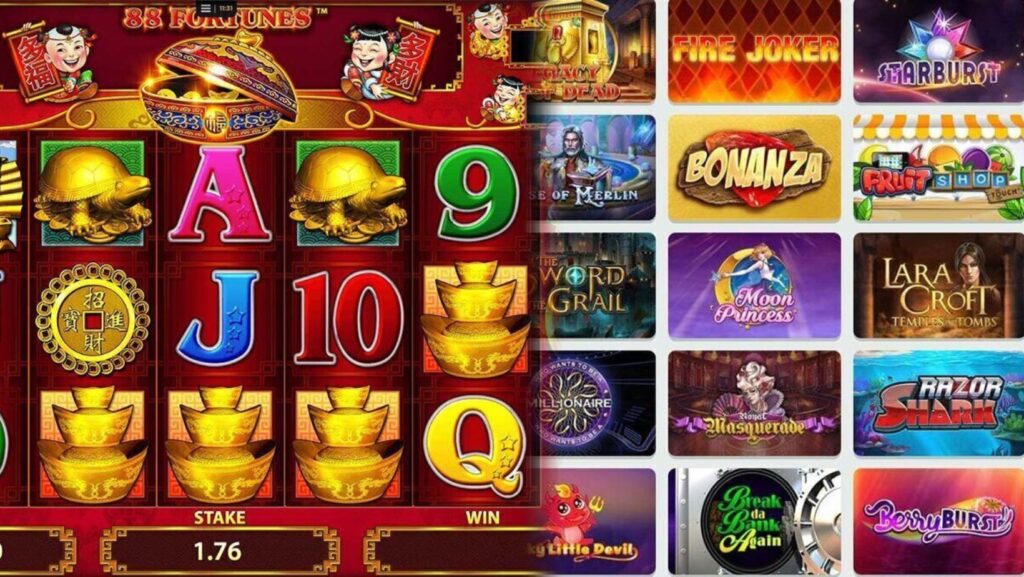
Ever wondered whether sweepstakes casinos and social casinos are basically the same thing? At first glance, yeah—they both offer casino games without the high-stakes cash gambling you’re used to. But look a little closer and you’ll see a couple of big differences that matter a lot.
If you’re managing or planning a gaming platform, knowing these differences isn’t just trivia. It shapes your business strategy, legal stuff, and how you keep players coming back for more.
What Makes Social Casinos Tick?
Social casinos are like the friendly neighborhood arcade. You play slots, blackjack, or poker using virtual coins that don’t have any cash value outside the game. You can buy more coins if you want but at the end of the day, it’s just for fun—no cashouts, no real prizes.
The real charm? All the social bells and whistles. Think chatting with friends mid-game, joining tournaments, or climbing leaderboards. It’s about being part of a community with shared excitement but without any financial risk. Great for people who like the thrill without the pressure.
Sweepstakes Casinos: Same Fun, But with Some Real Stakes
Sweepstakes casinos feel a bit like social casinos’ edgier siblings. They also use virtual currencies, but here you get two flavors: the usual virtual coins and special sweepstakes coins that can win you actual prizes like cash or gift cards.
The legal trick? Sweepstakes casinos operate under promotional laws that let them offer prizes legally without being classified as gambling. They often give players free ways to earn sweepstakes coins, even a mail-in request, to stay squeaky clean with the law.
This means while you’re spinning reels or joining bingo, there’s a chance of a real win in your pocket. That extra bit of excitement hooks a lot of players who want the fun plus a shot at something tangible.
Behind the Business Models: Monetization and Legal Lines
Now that we’ve looked at the surface, let’s peek behind the curtain. Both social and sweepstakes casinos rely heavily on virtual currencies—often called Gold Coins—but their monetization strategies differ significantly.
Social casinos generate revenue primarily through in-app purchases of Gold Coins, VIP memberships, and advertising. Since there are no real prizes, their focus stays on keeping players entertained and encouraging social interaction. The legal compliance here is lighter, as these platforms are generally not classified under gambling laws, making market entry smoother and less costly.
Sweepstakes casinos, however, operate under a promotional sweepstakes model. Players use Gold Coins for fun, but it’s the Sweep Coins—the special currency—that gets players into prize drawings for real-world rewards like cash or gift cards. To keep it legal, sweepstakes casinos must offer a “no purchase necessary” way to obtain these Sweep Coins. This might involve daily bonuses or even mail-in requests for free coins, skirting traditional gambling restrictions.
This dual currency system allows sweepstakes casinos to tap into the thrill of real rewards while operating in jurisdictions where traditional gambling is heavily restricted or outright banned.
Player Engagement: Why Real Prizes Make a Difference
Prize-driven play motivates more sustained engagement. Sweepstakes casinos see higher player acquisition and retention because players chase real-world wins—not just virtual trophies. This drives increased session durations and boosts revenue through purchases of Gold Coins used to play and earn Sweepstakes Coins.

That said, social casinos foster vibrant online communities and appeal to players seeking casual, risk-free entertainment. They excel at social features—leaderboards, chat rooms, tournaments—that nurture engagement without the pressure of real betting.
Operators eyeing longevity often look at hybrid models blending social play with prize elements to cover wider audience tastes.
Layered Legal Compliance and Risk Management
Here’s where it gets intricate. Sweepstakes casinos must align closely with local sweepstakes laws that mandate fairness, transparency, and proper disclosure. This means offering official rules, random prize draws, and transparent prize allocation.
Social casinos typically skirt gambling regulation by not offering monetary prizes, but that doesn’t mean they avoid compliance entirely. Data privacy, advertising standards, and platform security all require attention.
If you run or plan to launch either type of platform, investing in specialized compliance expertise pays off to avoid costly regulatory slip-ups.
A Quick Comparison Table For Clarity
| Criteria | Social Casino | Sweepstakes Casino |
| Virtual Currency | Gold Coins only | Gold Coins + Sweepstakes Coins |
| Real Rewards | Virtual rewards only | Real prizes via sweepstakes entries |
| Legal Standing | Not gambling, low regulation | Promotional laws, require no-purchase alternatives |
| Revenue Models | Ads, purchases, memberships | Ads, purchases, prize-driven incentives |
| Player Appeal | Casual, social gaming | Players seeking entertainment + real prizes |
| Game Variety | Focused on slots & tables | Broader, including bingo & others |
| Compliance Complexity | Lower | Higher, needs legal vigilance |
Future Outlook
Both models are evolving with tech—AI and blockchain are creating trust layers and ultra-personalized experiences. Imagine locating underage players, preventing fraud faster, or offering provably fair draws via blockchain ledgers.
Cross-platform play, mobile accessibility, and new social features continue blurring lines between social and sweepstakes casinos. It’s less about which is better today and more about how they adapt to tomorrow’s player expectations. Advances in social casino development, including AI and blockchain integration, are set to deepen player engagement and trust in the coming years.
If you’re in this space, these trends are a roadmap on where to focus resources, whether targeting casual fun seekers or prize hunters motivated by cash.


